- Home
- Kristin Harmel
The Sweetness of Forgetting Page 32
The Sweetness of Forgetting Read online
Page 32
“I love you,” she’d murmured to him.
And now, as she floated in this sea, she realized it wasn’t a sea at all, in fact, but rather the thousands of sheer layers of her wedding dress, cradling her in their softness. She saw the colors she’d painstakingly layered together, and she realized that she could see through each of them, just a little bit. They were soft against her skin, just as they had been on that April day, so long ago.
She listened harder as she floated slowly up through the layers. And then, suddenly, she knew. She must be dead already. She was surprised she hadn’t realized it before; it was so obvious. Of course that was why she’d been hearing Alain’s voice for days; he was calling her home, showing her the way through the milky strangeness, the way to where her family had been all along. They hadn’t been in the sky; they’d been in this strange, layered world. But perhaps this was the sky after all. How was she to know what the clouds really felt like? Maybe this was sunrise. Maybe any moment now, the strange sea would be illuminated from within.
And then, Rose knew for sure that she had died, and that heaven was real, for she could hear the voice of her love calling for her.
“Reviens à moi.” Jacob’s voice drifted down from above. “Reviens à moi, mon amour! Return to me, my love!”
Rose wanted to reply. She tried to call back, “I am coming, Jacob!” But the sounds died in her throat.
But then she felt his hand encircle hers. She knew at once it was Jacob; she would know his touch anywhere, although it had been nearly seventy years since she’d last felt it. His hand wrapped around hers the way it always used to: warm, strong, familiar. It was the hand that had saved her, so long ago.
She knew that he was pulling her to him, after all these years, and that this must mean he’d forgiven her for sending him back to his death. Her heart overflowed, and in her eyes, she could feel tears. It was all she’d hoped for over the years.
She took a deep breath and realized that the sea smelled like lavender, the same scent she’d breathed in on her wedding day. She was home, finally home. She held tight to Jacob’s hand and began, at long last, to swim toward the surface.
Chapter Twenty-nine
It’s Annie who notices first.
“Mom!” she hisses, tugging frantically at my arm as I watch Jacob leaning over Mamie, whispering to her in French. We’d arrived at the hospital an hour ago, and Jacob has been bent over Mamie ever since.
“What is it, honey?” I ask, unable to look away from the scene, which feels futile and sad.
“She’s moving, Mom!” Annie says. “Mamie’s moving!”
I realize with a start that she’s correct. I watch in awe as Mamie’s left hand twitches a little and closes around Jacob’s. He continues to whisper to her, more urgently now.
“Is she . . . ?” Alain begins, trailing off as he stares.
“She’s waking up,” Gavin murmurs from beside me.
We all watch as her eyelids begin to flutter and then, unbelievably, open. I know that one of us should go get a doctor or a nurse, but I find myself rooted to the spot, unable to move at all.
She exhales loudly, like someone who’s been holding her breath for a long time, and her eyes dart quickly around the room, until they alight on Jacob and widen. She says something unintelligible, in a voice that doesn’t sound like hers. It’s as if she’s trying to remember how to use her mouth.
“My Rose,” Jacob says, “I have found you.”
She moves her lips for a moment, makes another moaning sound, and then says, “You . . . here,” in a voice that is raspy and hoarse, but unmistakable. She stares up at Jacob, who is crying now as he leans down and kisses my grandmother once, lightly, on the lips.
“Yes, I am here, Rose,” he murmurs. They stare, drinking each other in.
“We . . .” Mamie trails off and tries again. “We . . . in heaven?” Her words are slow like molasses, but she seems determined to speak.
Jacob draws a shuddering breath. “No, my love. We are in Cape Cod.”
Mamie looks confused for a moment, and then her cloudy eyes scan the room, alighting first on me, then on Annie and Gavin, and finally on her brother. “Alain?” she whispers.
“Yes,” he says simply. “Yes, Rose. It is me.”
She looks back to Jacob in stunned disbelief. “Alain . . . alive? You, Jacob . . . you are alive?” she whispers to him.
“Yes, my love,” Jacob says. “You saved me.”
Mamie’s eyes fill and tears begin to run down her face in rivers. “I did not . . . I did not save you,” she whispers. “How can you say . . . ?” She pauses, drawing a shuddering breath. “I asked you . . . to go back. It is . . . my fault.”
“No,” Jacob says. “None of it was your fault, dear Rose. I lived because I always believed I would see you again. It is you, for seventy years now, who has kept me alive. I have never stopped looking for you.”
She continues to stare at him.
“Someone should go get the doctor,” Gavin whispers beside me.
“Uh-huh,” I reply vaguely. But none of us make a move to go.
After a moment, Mamie turns her head slightly until she focuses on me. “Hope?”
“Yes, Mamie,” I say, taking a step forward.
“Why . . . you crying?” she asks haltingly.
“Because . . .” I find I cannot explain myself. “Because I’ve missed you so much,” I conclude, realizing in that moment how true the words are.
She looks back at Jacob. “How . . . ?” she asks.
He nods, understanding her. “Hope found me,” he says. “Hope and Annie and their friend Gavin.”
“Gavin?” she asks. She looks over at us again with some effort, and she scans Gavin’s face in confusion. “Who Gavin? You?”
“Yes, ma’am,” Gavin replies. “We’ve met a few times. I’m a handyman in the area. I’m . . . I’m friends with your granddaughter.”
“Yes,” Mamie murmurs. “Yes, I know now.” She closes her eyes for a moment, and when she opens them again, she stares at Jacob for a long time before looking back at me.
“How . . . how you find my Jacob?” she whispers.
“It was the list you gave me,” I say. “The one that sent me to Paris.”
She looks confused, and I realize she doesn’t know what I’m talking about. In the drama of the moment, I’d almost forgotten about her Alzheimer’s.
“But it was the fairy tales,” I add as she stares at me. “It was your fairy tales that finally led us to him. I didn’t know they were real.”
“They are real,” Mamie murmurs. But she’s looking at Gavin as she says it. “Of course. Always real.”
Her eyes shift to Alain and fill with tears again. “Alain?” she says softly.
“How do you recognize me after all these years?” he asks.
“You . . . my brother,” she says clearly. The tempo of her speech is picking up a little; it’s as if the words are coming back as she wakes up. “I would know you . . . anywhere.”
“I’m sorry I did not find you sooner,” he says. “I did not know . . . I did not know you were alive. All those years wasted.”
Mamie closes her eyes briefly. She’s crying again. “I believed . . . you dead,” she says. “In Auschwitz. That place. I imagined . . . many million times.”
“I believed you were dead too,” Alain murmurs.
Mamie turns her gaze to Annie next. “Leona?” she asks.
Annie’s shoulders slump, and my heart breaks a little for her; I know it hurts her when her grandmother doesn’t recognize her.
“No, Mamie,” Annie says. “Who’s Leona?”
But this time, it’s Jacob who answers. “Leona was my little sister.” He’s looking intently at Annie now. “My God, Annie, you look so much like her.”
Annie looks back at Mamie, her eyes wide. “You’ve been calling me Leona for months,” she says. “That’s who you meant?”
Mamie looks confused.
Annie t
urns to Jacob. “What happened to Leona?”
Jacob glances at me, and I nod slightly. Annie’s old enough to know. “She died, my dear,” he says. “At Auschwitz. I believe she did not suffer very much, Annie. I believe that she went peacefully.”
Annie’s eyes fill. “I’m sorry,” she murmurs to Jacob. “I’m really sorry about your sister.”
He smiles at her gently. “I can see her in you,” he says. “And that makes me glad.” He turns back to Mamie and bends toward her again. “Rose, Leona died many years ago. But this young lady here is Annie. Your great-granddaughter.” He pauses and says, “Our great-granddaughter.”
Annie looks at me sharply, and I realize that I haven’t told her yet. I haven’t told her that Jacob married Mamie long ago and was the real father to my mother. I reach over and squeeze my daughter’s hand. “I’ll explain everything later,” I whisper. She looks confused, and a little alarmed, but she nods.
Mamie is studying Annie now. “Annie,” she says finally. I can see recognition dawning in her eyes. “The youngest.”
“Yes, ma’am,” Annie mumbles.
“You are . . . good girl,” Mamie says. “I am proud . . . You have . . . spirit in you. It reminds me of . . . something I lost. Never let go . . . of that.”
Annie nods hastily. “Okay, Mamie.”
Finally, Mamie turns back to Jacob, who is still bent over her. “My love,” she says softly. “Do not cry.”
I realize that Jacob’s body is shaking with sobs, and that tears are streaming down his cheeks.
“We are together now,” Mamie continues. “I have . . . waited for you.” They stare at each other in silence, and it takes me a while to realize I’m holding my breath.
I watch as Jacob leans forward, slowly, gently, and kisses Mamie on the lips, pausing there with his eyes closed, as if he wishes never to move again. In that frozen moment, I’m powerfully reminded of yet another fairy tale. He looks very much like the prince kissing Sleeping Beauty, awakening her after a hundred years of slumber. I realize with a start that in a way, she’s been asleep for nearly that long; for seventy years, she’s lived a sort of half life.
“Forever, my love,” Jacob says.
Mamie smiles at him and stares into his eyes. “Forever,” she murmurs.
Chapter Thirty
Just past three in the morning, just a few hours after Annie, Alain, Gavin, and I left her alone with Jacob, Mamie slipped away peacefully in her sleep.
Jacob sat by Mamie’s bedside for the next few hours, and just after dawn, when he stepped out of a cab outside the front door of the bakery Mamie had founded so many years ago, he seemed a different man. I had expected that he would be sad, defeated, for he’d waited seventy years only to watch the love of his life slip away. But instead, his eyes shone differently than they had when we’d first seen him in New York, and he seemed a decade younger.
The nurses told me afterward that Jacob had talked to Mamie long into the night and that when they finally came to check on her, and realized she had died, she was smiling, and Jacob was still holding her hand, whispering to her in a language they didn’t know.
Gavin called his rabbi, who came to meet with Jacob, Alain, and me, and together, we planned a burial according to Jewish customs. I understood now that Mamie had always been Jewish; that had never changed. Perhaps, as she’d said, she’d been Catholic and Muslim too. But if one could find God everywhere, as Mamie had once told me, it seemed to make the most sense to send her home along the same road she’d entered upon.
We took turns sitting with Mamie—Gavin explained to me that in the Jewish faith, one is not supposed to leave the deceased alone—and a day later, she was buried in a wooden casket beside my mother and grandfather. I had struggled with what to do about that, having just learned that her marriage to Jacob in effect annulled Mamie’s marriage to my grandfather. But Jacob had wrapped his hands around mine and said gently, “God does not mind where you are put to rest. I think Rose would want to be buried here, where she lived her life, alongside the man who gave her a new life, and alongside her daughter. Our daughter.”
For the next several days, I went through the motions of running the bakery, but my heart wasn’t in it. It felt like a great hole had opened in my life. It was just me now, against the world: me responsible for this bakery; me responsible for my daughter; me responsible for carrying on a family tradition I was only beginning to understand.
On the sixth night after Mamie died, Alain takes Annie out for a walk, and I sit by the fire with Jacob, listening as he talks haltingly of the years after the war.
“I am so sorry, Hope, that I was not there to see you grow up,” he tells me as he squeezes my hands. I can feel his hands shaking. “I would give anything to have been there. But you are a fine woman, a good woman. You remind me so much of Rose, of the woman I always knew she would grow to be. And you too have raised a fine daughter with a fine heart.”
I thank him and stare into the fire, wondering how to ask him the question that has been gnawing at the edges of my mind since I’d met Jacob. “What about my grandfather?” I finally ask softly. “Ted.”
Jacob bows his head and looks into the fire for a long time. “Your grandfather must have been a wonderful man,” he says finally. “He raised a fine family, Hope. I wish I had gotten a chance to thank him for that.”
“None of this is fair to him,” I say softly. “I’m sorry,” I add after a pause. “I don’t mean to offend you.”
“Of course not,” Jacob says quickly. “And you are right.” He pauses and stares into the fire for a long time. “He will always be your grandfather, Hope. I know that. I know you will never love me the way you love him, for you have known him your whole life.”
I open my mouth to protest, for this isn’t fair to Jacob either. But he holds up a hand to stop me. “I will always regret that I was not here for the things he was here to see. But that is the hand that life has dealt us. And we must accept it. You can only look forward in life. You can change the future, but not the past.”
I hesitate and nod. “I’m sorry,” I say, but the words feel lame and ineffectual. “Did my grandmother say anything about him?” I ask. “To you? Before she died?”
He nods and looks away. “She explained everything as best she could,” he says. “I think she believed she had to make me understand, but the truth is, I have always understood, Hope. War tears us apart, and there are some things that cannot be put back together.”
“What did she tell you?”
He turns to look at me. “She made it to Spain in the late autumn of 1942. It was there that she met your grandfather. He had been in a U.S. military plane shot down over France, and like your grandmother, he had been smuggled into Spain, through channels in France that helped the Allies. He and your grandmother were hidden in the same home, and that is how they met. He fell in love with your grandmother, who was due to give birth soon. It was around that time that there was an influx of Jewish people who escaped from Paris, people Rose had known in her former life, and they told her I was dead. She did not believe it at first, but some of them claimed to have seen me die in the streets of Paris. Another said he had seen me taken to the gas chamber at Auschwitz.”
“My God,” I murmur, not knowing what else to say.
Jacob looks out the window, where ice has begun to creep over the pane, obscuring our view into the darkness outside. “She did not believe it at first,” he says again. “She said she did not feel it in her soul. But the more people who told her I was gone, the more convinced she became that I had, in fact, died, and what she was feeling was due to the fact that I lived on through the child growing inside her. She knew then that she had to protect our daughter at all costs. And so when Ted proposed to her and told her he would bring her back to the United States before the baby came, she knew it would give our child the chance to be born an American, which is what we had always dreamed of together. It would give our child a chance to grow up in a land wher
e she could always be free.
“She went back to the United States with your grandfather, who married her,” Jacob continues slowly. “They listed him on the birth certificate as Josephine’s father, so there would be no complications. Later, they paid to have the year changed so that no one would do the math and doubt the story. Your grandfather asked just one thing of your grandmother: that she permit him to raise Josephine as his own, that Josephine never be told of my existence.”
“So she never told my mother about you?”
Jacob shakes his head. “It was, she said, one of the greatest regrets of her life. But Ted was a wonderful father, and she felt she must keep the promise she made to him. She had traded one life for another, and she never forgot the bargain she had made. But Rose said she tried to keep me alive for Josephine in other ways.”
“In her fairy tales,” I murmur. “You were there all along in the stories she told my mom and me.” I pause and suddenly remember something Mamie told me. “But my grandfather went to Paris in 1949, didn’t he? To find out what happened to you and my grandmother’s family?”
Jacob takes a deep breath and nods. “That is the one part of the story your grandmother could not explain,” he says. “And I did not have the heart to tell her that Ted may have known all along. I was listed in the records then. I had not yet moved to the United States. Not until 1952. I was doing everything in my power to make sure I would be found, because I did not believe that Rose had perished. I believed she survived and that we would find each other again.
“I suppose we will never know what happened,” he continues. “But if your grandfather came home and told your grandmother I was dead, I assume he knew he was telling a lie.”

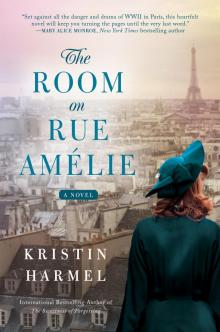 The Room on Rue Amélie
The Room on Rue Amélie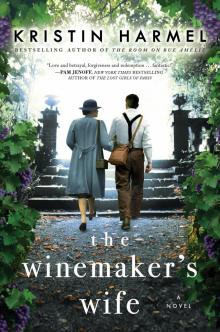 The Winemaker's Wife
The Winemaker's Wife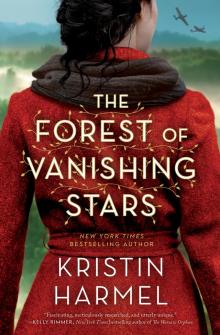 The Forest of Vanishing Stars
The Forest of Vanishing Stars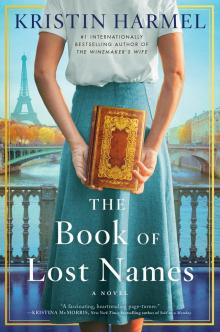 The Book of Lost Names
The Book of Lost Names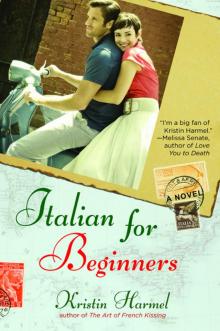 Italian for Beginners
Italian for Beginners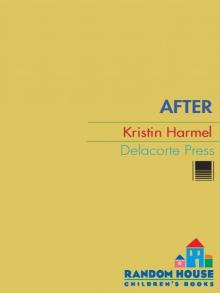 After
After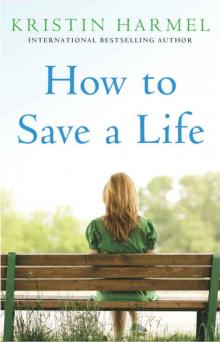 How to Save a Life
How to Save a Life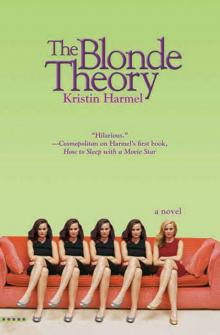 The Blonde Theory
The Blonde Theory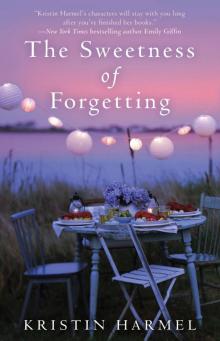 The Sweetness of Forgetting
The Sweetness of Forgetting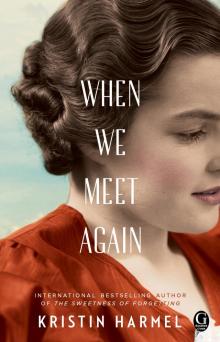 When We Meet Again
When We Meet Again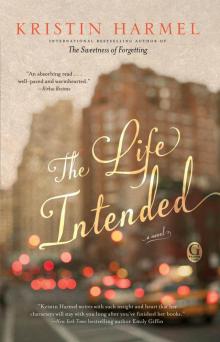 Life Intended (9781476754178)
Life Intended (9781476754178)